IFRS vs. U.S. GAAP: Which Accounting
Framework Fits Your Scaling Business?

As a company scales, financial reporting goes from being a back-office function to a strategic tool. Investors, lenders, and partners all rely on your financial statements to make decisions. That’s why choosing the right accounting framework—IFRS or U.S. GAAP—isn’t just about compliance. It directly affects how outsiders view your company’s performance, stability, and growth potential.
Which one should you use? Let’s break it down in simple terms.
What is U.S. GAAP?
U.S. GAAP (Generally Accepted Accounting Principles) is the standard set of accounting rules in the United States. It’s rules-based, meaning it provides very specific guidance for many industries and scenarios.
Think of GAAP like a detailed rulebook: it reduces ambiguity but also limits flexibility.
For example: Under GAAP, a software company must follow specific guidance on when to recognize subscription revenue.
Key Advantages of GAAP:
- Highly structured—ensures consistency across U.S. businesses.
- Well-recognized by American banks, investors, and regulators.
- Required if you plan to list on U.S. stock exchanges.
Drawbacks of GAAP:
- Can feel rigid, especially for fast-changing industries.
- Sometimes creates reports that are harder for global investors to compare.
What is IFRS?
IFRS (International Financial Reporting Standards) is the global counterpart, used in over 140 countries, including Canada, the EU, and much of Asia. Unlike GAAP, IFRS is principles-based, meaning it provides guidelines but allows professional judgment.
Think of IFRS like a flexible framework: it adapts to new situations but requires more interpretation.
For example: Under IFRS, a company may revalue fixed assets like real estate to reflect fair market value. GAAP generally prohibits this.
Key Advantages of IFRS:
- Globally recognized—ideal for international expansion.
- Encourages transparency and comparability across countries.
- More flexible for unique or evolving business models.
Drawbacks of IFRS:
- Leaves room for interpretation, which can reduce consistency.
- Less familiar to U.S.-based investors and regulators.
IFRS vs. GAAP: Side-by-Side Comparison
Here are some practical differences that affect scaling companies:
Which Framework Should Scaling Companies Choose?
The choice depends on your company’s growth vision:
- Choose GAAP if:
- You operate mainly in the U.S.
- You’re planning an IPO on a U.S. exchange.
- Your investor base is mostly domestic.
- Choose IFRS if:
- You’re expanding globally.
- You want to attract international investors.
- You operate in a jurisdiction where IFRS is required.
Pro Tip: Some companies prepare dual financials (both GAAP and IFRS) to satisfy investors in multiple regions.
Why It Matters for Scaling Companies
Your framework influences more than just compliance:
- Investor Appeal—Global investors may prefer IFRS, while U.S. investors rely on GAAP.
- Valuation Differences—IFRS flexibility (like revaluing assets) can change how strong your balance sheet looks.
- M&A Activity—If you plan to sell or merge internationally, IFRS reports may be required.
- Funding Access—Banks and lenders often want standardized reporting that matches their jurisdiction.
Simply put: your accounting framework affects how others see your company’s worth.
FAQs on IFRS vs. U.S. GAAP
- Can a U.S. company use IFRS? Public U.S. companies must use GAAP, but private companies sometimes prepare IFRS reports for global stakeholders.
- Which framework is easier for startups or small businesses? GAAP is more structured (less room for interpretation), while IFRS allows flexibility. If you plan to raise international capital, IFRS may give you an edge.
- How does the choice impact taxes? Taxes in the U.S. are based on GAAP, but IFRS adjustments may still be required for international reporting.
- Do companies ever switch frameworks? Yes, especially when moving from domestic to international operations. However, switching can be costly, so planning ahead is best.
- Will the U.S. adopt IFRS? Unlikely in the near future. U.S. regulators prefer GAAP, but convergence efforts have brought the two frameworks closer over time.
Conclusion
For a scaling company, the choice between IFRS and U.S. GAAP is more than an accounting preference—it’s a strategic decision.
- Stick with GAAP if you’re U.S.-focused and aiming for a domestic IPO.
- Lean toward IFRS if your vision includes global expansion and international investors.
Making the right choice now can save you significant costs, confusion, and compliance hurdles later.
Book a consultation today. We’ll help you evaluate your business goals and determine whether GAAP, IFRS, or dual reporting is the right path for your growth.

